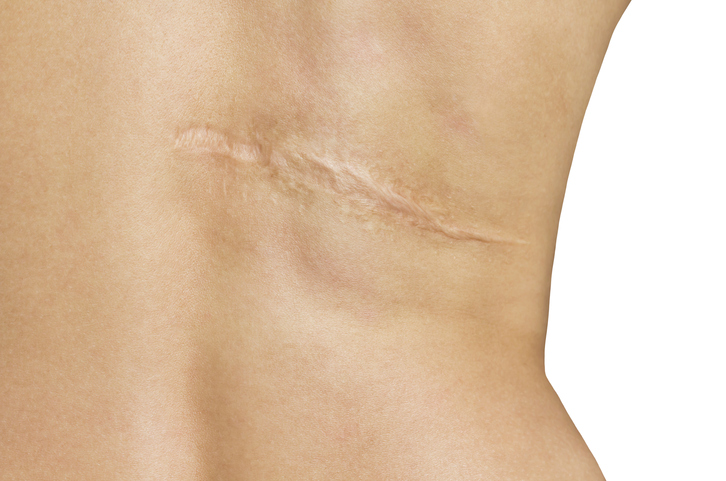
Having surgery is stressful enough without having to worry about the scar it will leave behind. While there are many non-invasive surgeries these days thanks to laparoscopic procedures, there are still some surgeries where scars are unavoidable, such as C-Sections. Worrying about scars shouldn’t be your first concern when undergoing surgery. Fortunately, there are steps you can take to minimize their appearance.
Pre-Surgery
Surprisingly, you can start taking steps to prevent scarring even before the surgery takes place. If you smoke, stop about two weeks before the surgery, as the nicotine present in cigarettes constricts blood vessels and slows the healing process. The slower your incisions heal, the higher the risk of scarring.
Stop drinking alcohol as well as coffee and other beverages that have caffeine. That’s because these drinks can have a dehydrating effect on the body, which can deter scars from healing as quickly. Instead, stick with water, and drink plenty of it. Eat healthy foods with a balance of lean protein, vegetables and fruits, and don’t forget to take your multivitamins.
Make sure you are at a healthy weight before your surgery as well. If you are overweight, your doctor may have to cut deeper and work harder to make clean incisions. You don’t want to end up with a jagged scar.
Post-Surgery
After the surgery, continue your healthy diet regimen and get plenty of rest. Sleep balances out your hormones and keeps your stress level down. Don’t engage in strenuous exercise until the doctor gives you the OK. You don’t want to put stress on the incision areas, causing them to stretch and possibly re-open.
Once the initial wounds have healed, start massaging the area daily. This will keep the formation of scar tissue at bay. Once your doctor has given the OK, start off with some light exercises, which will increase blood flow to the area and help it heal thanks to oxygen and nutrients.
Some people seek out microdermabrasion after surgery to stimulate cell turnover in the scar site. Ask your doctor about this, though, as this shouldn’t be done until at least two months post surgery.
Your best bet is to pick up at-home treatments such as Scarfade. Proven to reduce the appearance of scars, this topical silicone scar gel regulates the production of collagen. It is a very popular treatment for minimizing the development of scars after surgery.
Moisturize your skin every day as well. Keeping your skin supple and soft will go a long way towards helping scars to heal. Dry, flaking skin can become itchy and cause you to scratch, which can re-open and aggravate your wounds.
